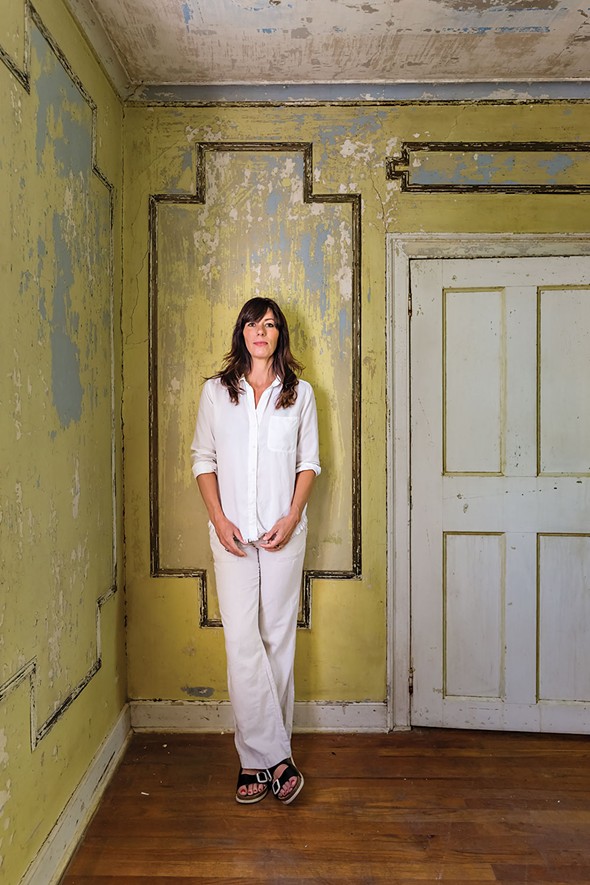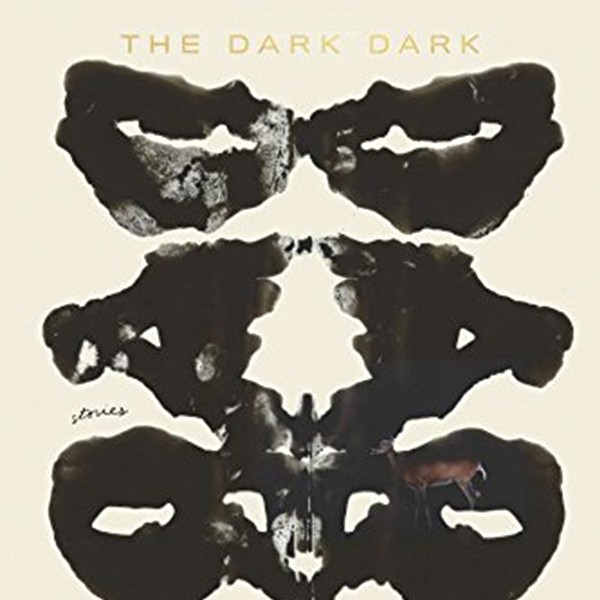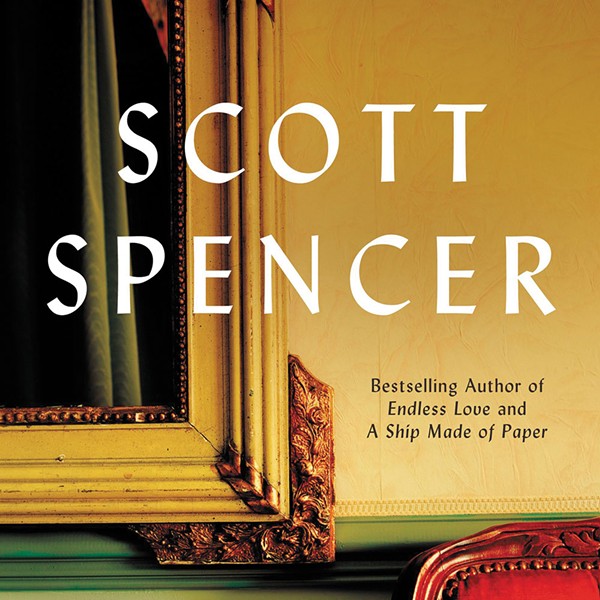Jen Beagin's room is a special kind of clean that only comes with not having a lot of stuff. "All of my books are in storage," she says, as I peruse the handful of colorful spines that have made their way out of boxes: Annie DeWitt, Joy Williams, Ottessa Moshfegh. "I have to be careful about what I read while I'm writing," Beagin says, handing me a copy of Nell Zink's The Wallcreeper. "She's doing what I'm doing but way better."
Beagin is endearingly modest. This is perhaps in part due to the fact that, at age 46, her writing career has only just begun. In March, Beagin won the prestigious Whiting Award for her debut novel Pretend I'm Dead (Northwestern University Press, 2015), which tells the story of Mona, a 24-year-old house cleaner and amateur photographer who volunteers at a needle exchange in her spare time. "Mona's a ballsier version of myself," Beagin admits.
From my view, though, Beagin seems plenty ballsy. Between swigs from a bottle of beer and drags from a cigarette, she emanates the punk rock cool of Patti Smith, and looks a bit like her too, with dark, layered hair, white button-down shirt, and black choker necklace. There seems an incongruity between her and the Hudson home she's been living in since October: a mazelike 18th-century Dutch farmhouse that she shares with a young family. In the backyard, an infant sleeps on a quilt in the afternoon sun, a copy of Goodnight Moon nearby. A few feet away, Beagin's donkeys—Ellington and Pantaloon—munch on the grass.
While the bucolic homestead feels rooted in time and space, Beagin seems delightfully untethered. "I was living in Boston after Switzerland and dating a guy from Hudson," she explains, retracing the steps that brought her to New York. Like her leading lady, Mona, Beagin was kicked out of her childhood home in Torrance, California, for "being bad" and ended up in Lowell, Massachusetts. "I call it Hole," she says. "It's a bit depressing there." In Lowell, Beagin says, "I was a failed visual artist and cleaning houses and taking pictures of myself in people's houses." One such self-portrait is used as the cover of Pretend I'm Dead, which features Beagin standing half-obscured by an arched doorway, wearing a vintage cleaning smock, and holding a French maid-style feather duster with one eye peeking out disconcertingly at the camera.
Beagin felt her house-cleaning photographs were too weird and creepy to stand alone in an art show, and so in her mid-30s she enrolled in a creative writing course at UMass-Boston in order to develop some fictional contexts for them. Out of this class, her first "Mona" stories were born, and soon after, she used these early shorts to get into an MFA program at the University of California, Irvine. Five years and 43 drafts later, Pretend I'm Dead was complete. "I just realized life was short and I could die at any time, so I might as well tell some stories," Beagin says about her late entry into authorship. "What the hell. I might not be the best, you know, but I can write a sentence."
It's difficult to swallow Beagin's skepticism about her abilities as a writer, as Pretend I'm Dead's (nearly) 200 pages are airtight with punchy, earmark-worthy prose. Beagin's voice in conversation is much like the one found in the pages of her book: wry, subtle, unpretentious, as in her explanation for why Mona keeps company with junkies: "No do-gooders, no show-offs, no save-the-children types. They chain-smoked and ate nachos and hot dogs from 7-Eleven—she admired that."
As the range of topics explored in Pretend I'm Dead may suggest—from substance abuse and sexual violence to self-harm and suicide—Beagin projects a raw honesty. "I'm not very imaginative, actually," she says, which is a bit surprising, since the thrill of Pretend I'm Dead largely resides in its main character's active imagination. While cleaning houses, Mona invents stories about her clients, unearthing biographies from their household ephemera as she dutifully dusts and polishes them. "You learn a lot about a person by cleaning their house," Mona says. "What they eat, what they read on the toilet, what pills they swallow at night. What they hold onto, what they hide, what they throw away. I know about the booze, the porn, the stupid dildo under the bed. I know how empty their lives are."
Perhaps what Beagin means by not being imaginative is that many of her characters are based on real people, many of the stories on real experiences. Beagin projects that 60 percent of the book ("OK, 62 percent," she says) is autobiographical. "I cleaned house for a guy who I thought was molesting his daughter, and it turned out he had stomach cancer," says Beagin. "It's very fictionalized [in the book], but I became aware of the ways I projected my own story onto these random people. Cleaning houses, you're so isolated. Your mind wanders because it's very monotonous work."
Pretend I'm Dead is filled with rich characters and layered storylines that have more modest—and often humorous—origins in Beagin's real-life wanderings. Mona's name, for example, means "alone" in Sanskrit, a fitting epithet for a reclusive outsider. But Beagin admits that this thematic resonance only came into view after she had decided upon the name, an alias she used while dating online in the `90s. Other characters in the book that feel like they could only be the product of deep, symbolic musings actually have roots in Beagin's stranger-than-fiction experiences. Case in point: Jesus (pronounced like the son of God himself), who figures prominently in the novel's cathartic ending. "I hired movers for the first time in my life," Beagin says. "This guy showed up, this Puerto Rican guy, and I was like, 'Hey man, what's your name?' And he was like, 'Jesus.' And I was like, 'I can call you Jesús,' and he was like, 'No my name is Jesus. My mother is white.' I never forgot it."
Perhaps Beagin's inability to forget is what makes Pretend I'm Dead feel so true-to-life. One of the book's most memorable characters is Mona's boyfriend, Mr. Disgusting, a heroin-addicted, dumpster-diving poet who reads Chekov to Mona after impotency-beleaguered sex. "He's a composite of a bunch of dudes I dated," Beagin says. Even a poem hanging in Mr. Disgusting's bathroom was something Beagin saw tagged on a wall years ago and never forgot: "If we had beans, / we could make beans and rice, / if we had rice."
The poem gets at something essential to the spirit of Pretend I'm Dead, a book that is both bleak and hopeful. Mona's is a story of duality and tension: Depending on the light, Mr. Disgusting is either an "aging hipster" or a "total creature"; Valdez, New Mexico, where Mona lives after Lowell, is a place that's both dirty and clean; the book's title is a reference to both Mona's creative ingenuity and her childhood trauma. This coin-flip opposition is perhaps most acutely felt in Mona's struggle with presence and absence. The threat of absence, of aloneness, looms large for Mona. She even avoids including white-spined books on her bookshelf, which would break up the "blocks of red, pink, and green with some negative space." These holes threaten the possibility for feeling whole, an elusive state of being that fuels Mona's modern odyssey.
After learning that Jesus has a chest tattoo of his parents' names (not as a posthumous tribute but simply because he loves them), Mona realizes, "He was one of the fortunate ones: He'd emerged from childhood a whole person, and his past wasn't some vast, immovable mass with its own weather system." Sometimes, as in Jesus's case, feeling whole is a matter of luck, circumstance. Or, as in Mr. Disgusting's, it's a matter of finding a temporary fill for the holes. But Mona's challenge is figuring out how to be the author of her own happiness. "Feelings are just stories," Mona is advised by her New Age neighbors. "They have a beginning and an end."
This maxim sounds appealing, but in practice Mona struggles with saying "the end" to her pangs of existential dread. Fittingly, Beagin also finds closure difficult as a writer. "Endings are so horrible," she says. "I would say probably eight out of 10 books I won't read the ending." So it is appropriate, then, that her second novel (currently in the works) is not a new beginning, but rather a sequel to Pretend I'm Dead. She warns the second one will be longer and darker. "I'm not afraid to be dark now," Beagin says. "It took a long time." But if Pretend I'm Dead is any indication, the darkness will be softened by some light.



















